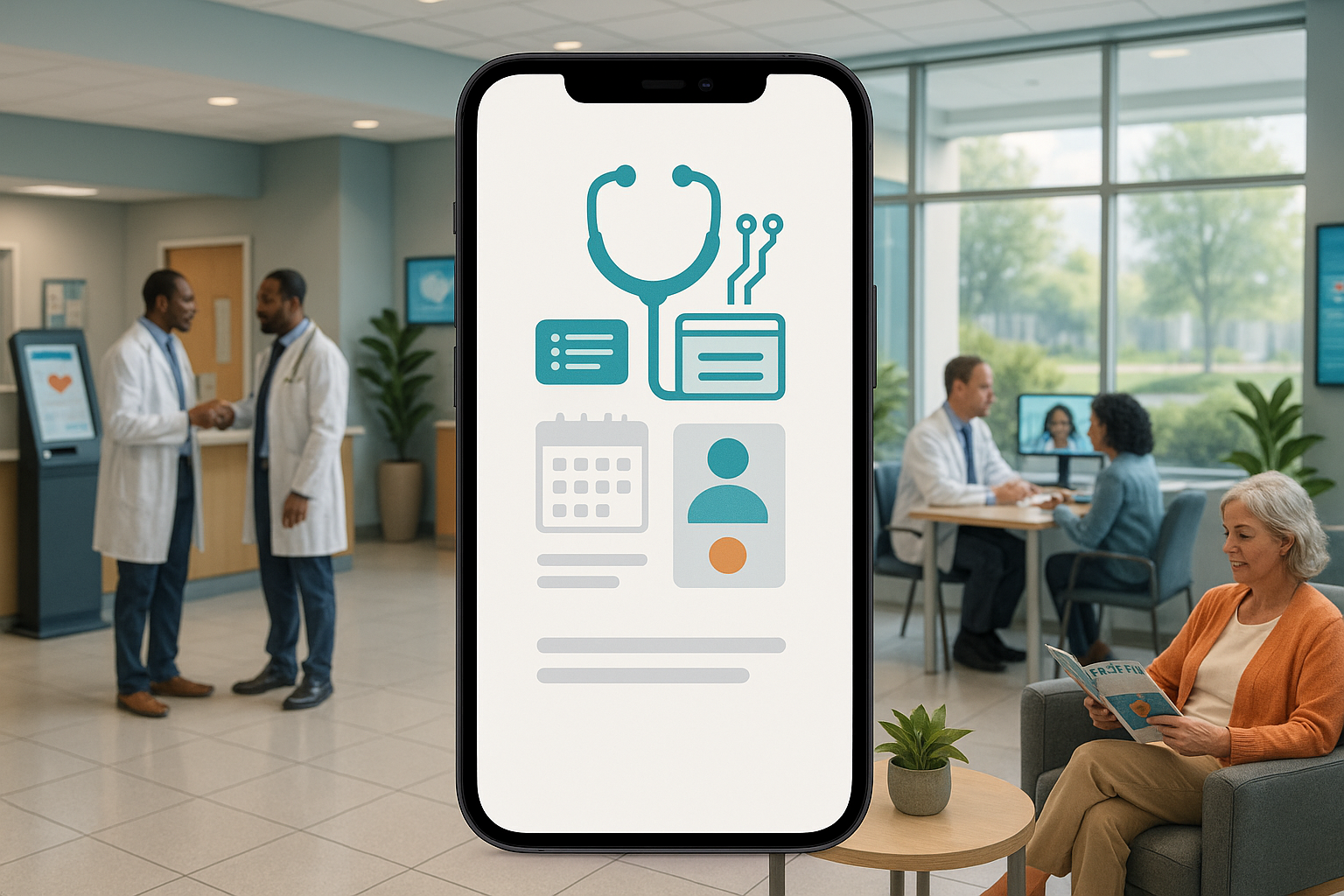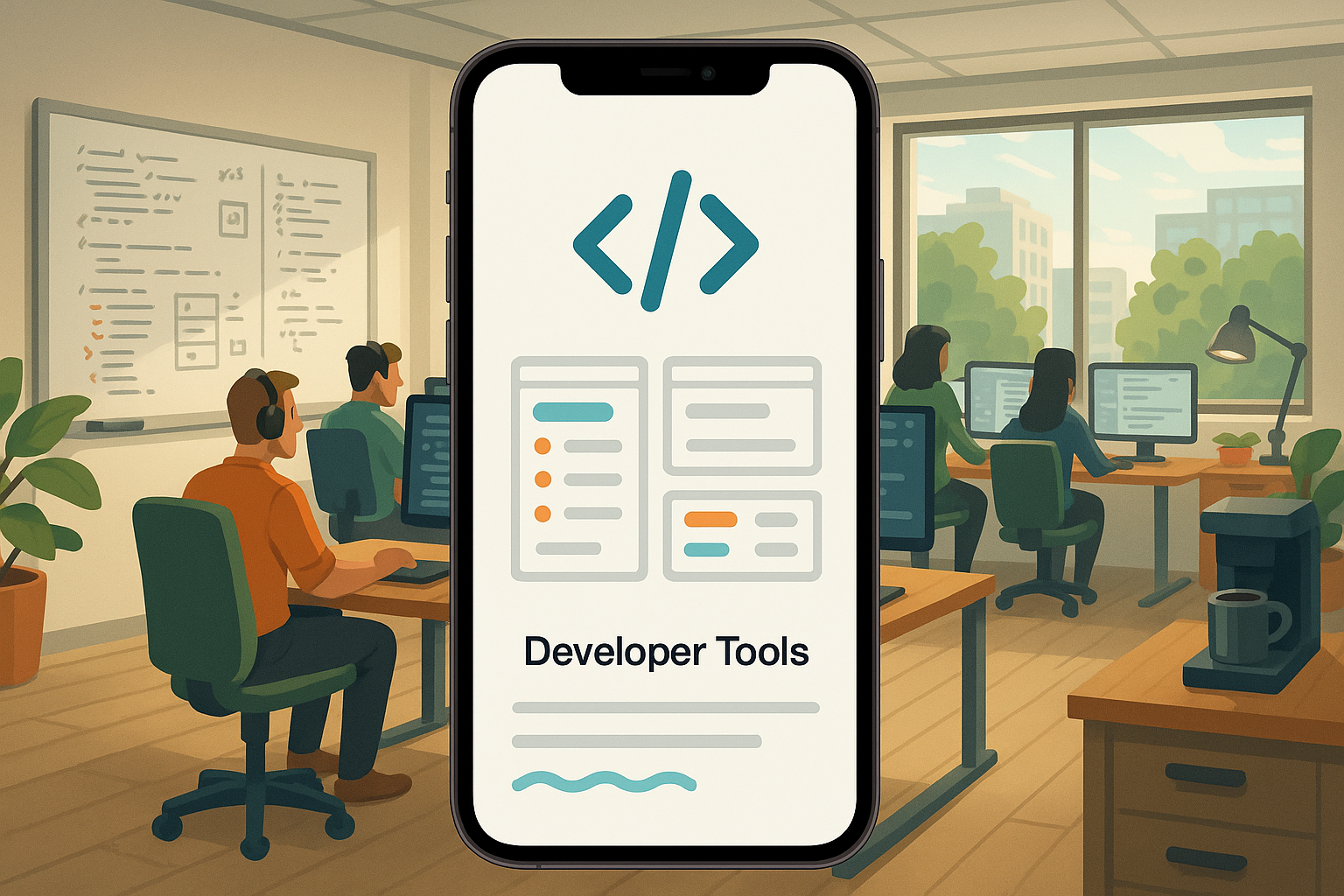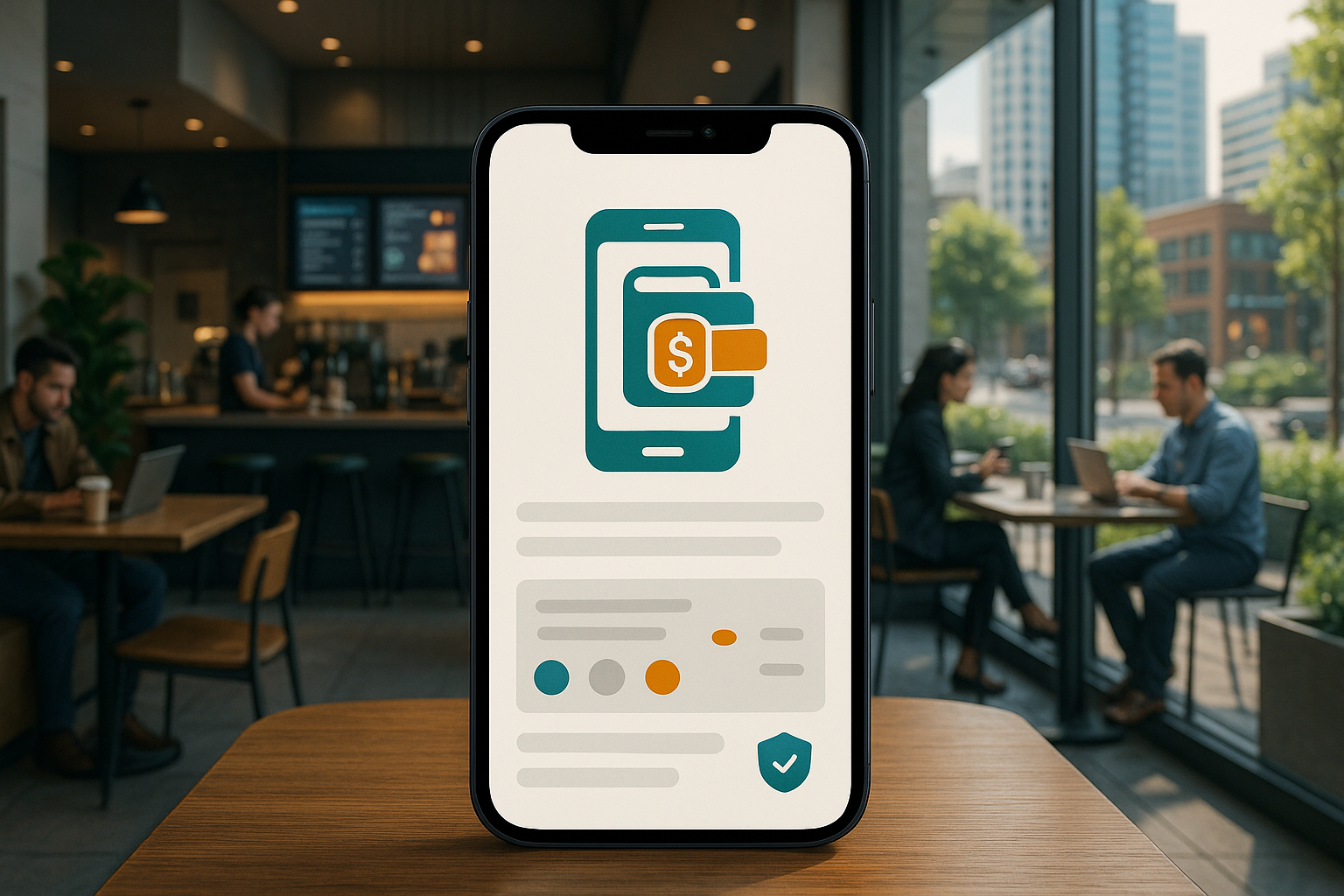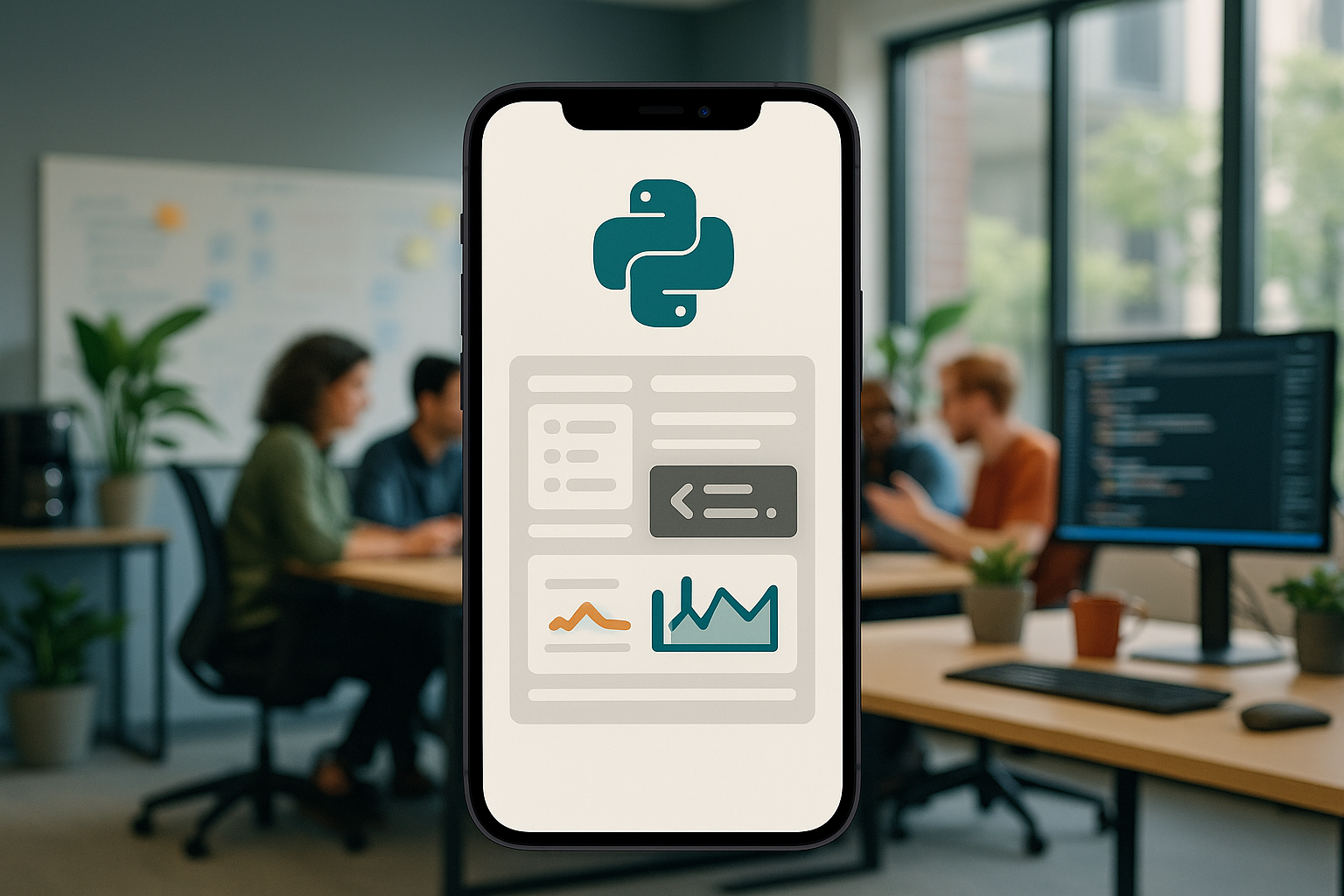Introduction
Healthcare apps have fundamentally revolutionized how people access medical services and manage their well-being. With over 350,000 health apps available, they have become an indispensable lifeline, connecting patients, medical professionals, and caregivers in ways that were previously unimaginable. From tracking vital signs to providing virtual consultations, these applications are at the forefront of a new era in medicine.
However, the path to developing a successful digital health app is fraught with challenges. The development process requires the integration of advanced technologies like artificial intelligence and machine learning, strict adherence to complex regulatory frameworks such as HIPAA, and a deep understanding of user needs to create an intuitive and reliable experience. Building such an application in-house can be a monumental task, demanding significant financial resources, specialized technical talent, and dedicated ongoing maintenance.
This article serves as a comprehensive guide to the world of digital health app development. We will explore what defines a digital health app, delve into the reasons why in-house development is so difficult, categorize the different types of apps on the market, and provide a realistic estimate of development costs. We will also highlight top development companies that can help you navigate this complex landscape. As a top US AI-powered app development firm with over 20 years of experience, we at MetaCTO are experts at turning ambitious healthcare ideas into market-ready applications. We understand these challenges intimately and are here to guide you through every step, from concept to launch and beyond.
What is a Digital Health App?
At its core, a digital health app, or mHealth app, is a mobile application designed specifically to improve the delivery of healthcare services to patients. The term “mHealth” itself refers to the use of mobile phones and wireless technology in medical care, a field that has grown exponentially to become a cornerstone of modern health management. These apps are not just simple tools; they are powerful platforms that leverage cutting-edge technology to make healthcare more accessible, efficient, and personalized.
The primary functions of digital health apps are diverse and impactful. They empower users to take a more active role in their own health by enabling them to:
- Manage chronic conditions: Apps can provide specialized tools for patients with long-term illnesses like diabetes, helping them track metrics, manage symptoms, and adhere to treatment plans.
- Monitor symptoms and vital signs: Users can log symptoms and track vital data, providing a continuous stream of information that can be shared with healthcare providers for more informed decision-making.
- Access telemedicine services: Digital health apps connect patients with doctors, therapists, and other specialists for virtual consultations, diagnosis, and treatment, breaking down geographical barriers to care.
- Connect with healthcare providers: They facilitate seamless communication between patients and their care teams, allowing for quick questions, follow-up appointments, and a more collaborative approach to health.
The best healthcare apps excel by providing a user-first experience built on a foundation of trust and reliability. They offer easy access to medical information, send crucial medication reminders, and feature robust symptom tracking. Ultimately, a great mHealth app leverages the latest technology not for its own sake, but to improve patient outcomes, enhance the quality of care, and make healthcare more accessible and affordable for everyone. They ensure patients can access healthcare services from anywhere, saving them time, money, and reducing the risk of exposure to contagions associated with in-person visits.
Reasons It Is Difficult to Develop a Digital Health App In-House
While the idea of building a proprietary digital health app is appealing, the reality of in-house development is often prohibitively complex and expensive. The journey from concept to a compliant, secure, and user-friendly app is lined with significant hurdles that can derail even the most well-intentioned projects. Partnering with a specialized mobile app development agency like MetaCTO can help you overcome these obstacles.
The Financial Burden
The costs associated with building a healthcare app are substantial. The initial development cost alone can range from $70,000 to $500,000. This wide range is influenced by the complexity of the features you wish to implement. Advanced functionalities like AI-driven preventive care, real-time telemedicine options, and integration with Internet of Things (IoT) devices require more development resources, which naturally increases the cost.
Beyond the initial build, the financial commitment continues. An in-house development team comes with significant overhead, including salaries, benefits, and office space. With the estimated annual wage for a single app developer in the United States hovering around $143,000, assembling a full team of designers, developers, and project managers becomes a major financial undertaking. Furthermore, ongoing maintenance is critical for any app’s long-term success. These costs, which range from 15% to 25% of the initial development cost annually, cover essential activities like security patches, bug fixes, user support, performance optimizations, and ensuring compatibility with new devices and operating systems. Outsourcing development can help lower these costs by providing access to a dedicated team without the long-term overhead.
Navigating Regulatory Complexity
Healthcare is a heavily regulated industry, and digital health apps must comply with stringent laws to protect sensitive patient information. In the United States, the Health Insurance Portability and Accountability Act (HIPAA) is the primary regulation governing patient data. However, one of the greatest challenges for developers is that while HIPAA provides guidelines, it does not offer specific, prescriptive instructions for developing secure mHealth apps.
This ambiguity means that development teams must possess deep legal and technical expertise to interpret these regulations and implement them correctly. It is not enough to simply encrypt data; the app must have robust security measures, policies to safeguard personal health information (PHI), and mechanisms to prevent unauthorized access. Developers must also factor in compliance costs, which can include certification fees from regulatory bodies like the Office for Civil Rights (OCR) and other legal expenses. Failure to comply can result in severe penalties and a complete loss of user trust.
Technical and User Experience Hurdles
Modern healthcare apps must be more than just functional; they must be intuitive, reliable, and accessible. Users expect a seamless, easy-to-use experience with a simple, clean user interface and clear instructions. Achieving this requires a user-first design approach and rigorous testing.
From a technical standpoint, development teams must:
- Integrate Advanced Technologies: Integrating complex systems like AI Development, machine learning, blockchain, and connected devices requires specialized expertise that is often hard to find and retain in-house.
- Ensure Cross-Platform Compatibility: A great health app must work seamlessly across different mobile devices, operating systems (iOS and Android), and often with third-party platforms like Electronic Health Records (EHRs). This requires extensive testing and continuous updates.
- Guarantee Accessibility: Many countries require digital platforms to be accessible, adhering to standards like the Web Content Accessibility Guidelines (WCAG 2.1AA). This ensures that people with disabilities can use the app effectively, a critical component of equitable healthcare.
- Build Trust: Above all, healthcare apps must be trustworthy, secure, and accurate. Patients must be able to rely on the app for correct information and tools, while providers must be confident that the platform is secure and compliant.
These multifaceted challenges demonstrate why in-house development is often not the most efficient or effective path. A dedicated development partner brings the necessary experience, technical skills, and regulatory knowledge to navigate this complex landscape successfully.
Different Types of Digital Health Apps
The digital health ecosystem is vast and varied, with apps designed to address a wide range of medical needs. These applications can be broadly categorized based on their primary function, each offering unique features to support patients and providers.
1. Medication Management and Adherence
One of the most common challenges in healthcare is ensuring patients take their medications as prescribed. Medication management apps are designed to solve this problem by providing timely reminders and tracking tools.
- Example: Medisafe Pill Minder and Trackers Medisafe is a leading app that helps users stay on top of their medications. Its intuitive navigation makes it easy to set up reminders, and users can confirm a dose has been taken directly from their device’s unlock screen. The app goes beyond simple alerts by offering caregiver support, allowing family members to be notified if a dose is missed. It also generates daily, weekly, and monthly reports to track adherence and integrates with wearable devices. While the core app is free, a subscription unlocks an ad-free experience and additional measurement tools.
2. Telemedicine and Virtual Consultations
Telemedicine apps have become indispensable, connecting patients with healthcare professionals remotely for diagnosis, treatment, and follow-up care. They offer convenience, save costs, and provide access to specialists who might otherwise be out of reach.
-
Example: Teladoc Teladoc provides 24/7 access to doctors, therapists, dietitians, and nurses through phone or video visits for a wide variety of urgent needs. A standout feature is its commitment to accessibility; users can select their preferred language during registration, including American Sign Language (ASL). For non-English speakers, Teladoc’s video service can create a three-way connection with an interpreter at no extra charge. The app’s design is highly user-centric, consolidating the most important information onto a single screen. Doctors can even prescribe medication through the app, making it a comprehensive virtual care solution.
-
Example: Eyecare Live This free mHealth app focuses specifically on ophthalmology, connecting users with their eye doctor for phone or video consultations. Eyecare Live offers various vision tests, including those for dry eye, and provides follow-up consultations for contact lens patients. The developer prioritizes privacy, stating that it does not collect data through the Android or iOS platforms. Its design ensures user journeys lead intuitively to the right destination, whether it’s a test or a consultation.
3. Chronic Condition Management
For patients living with chronic conditions like diabetes or heart disease, daily management is key. These apps provide specialized tools to track symptoms, monitor vital metrics, and educate users on how to live healthier lives.
- Example: MySugr MySugr is a blood sugar tracking app designed for patients with diabetes. It allows users to track blood sugar, carbohydrates, and other relevant data at a simple glance. The app features simple data logging and a design that relies on universal icons and text for easy navigation. To encourage consistent use, MySugr includes a “Challenges” section that gamifies health tasks. It also provides support and tips for coping with diabetes and is compatible with Apple Health and Google Fit. For some users, the pro version is offered for free with the purchase of certain testing devices.
4. Patient Portals
Patient portals are secure online websites or apps that give patients 24-hour access to their personal health information from anywhere with an internet connection. They are often tied to a specific healthcare provider or system.
- Example: MyChart MyChart is one of the most widely-used patient portal apps. It serves as a central hub where patients can manage their health information. Through the app, users can access their health records, view test results, schedule online appointments, pay bills, and communicate directly and effectively with their physicians. MyChart packages all patient information in one location and features a dynamic interface where icons respond to user actions, such as shrinking on scroll to present more information.
5. Mental Health and Wellness
These apps are designed to support mental well-being, offering everything from guided meditations to platforms that facilitate professional mental healthcare screening and treatment.
- Example: Springstone Developed by DBS Interactive, Springstone is a private and secure progressive web app (PWA) designed for assessing and treating youth mental health. Its primary goal is to improve the mental health screening and referral process for employers, employees, and primary care physicians. As a PWA, it is device-agnostic and accessible via a browser on any mobile or desktop device, allowing it to reach a broader audience. Springstone offers a frictionless user experience and features customizable administrative permissions for individual users, groups, and care coordinators.
Cost Estimate for Developing a Digital Health App
Understanding the financial investment required is a critical first step in the journey of digital health app development. As mentioned, the costs can vary significantly, but a data-driven estimate can help you plan accordingly. The typical cost to develop a healthcare app ranges from $70,000 to $500,000.
Several key factors influence where your project might fall within this range.
| Cost Factor | Description | Estimated Impact |
|---|---|---|
| Feature Complexity | The number and sophistication of features directly impact cost. Basic features like reminders and simple tracking are less expensive than advanced ones. | High |
| Advanced Technologies | Integrating AI for diagnostics, machine learning for personalization, telemedicine video streaming, or IoT device connectivity requires specialized skills and more development time, significantly increasing costs. | High |
| Platform Choice | Creating an app for a single platform (iOS or Android) is more budget-friendly. Developing for both platforms (cross-platform or native for each) nearly doubles the development effort and cost. | Medium to High |
| Development Model | An in-house team carries high, fixed overheads (salaries, benefits). Outsourcing to an agency can lower costs and provide flexible access to specialized talent. | High |
| Regulatory Compliance | Meeting legal obligations like HIPAA involves costs for legal consultation, security audits, and potential certification fees. | Medium |
| Third-Party Integrations | Integrating with Electronic Health Records (EHR), payment gateways, or lab systems adds complexity and cost due to additional development and testing. | Medium |
| Ongoing Maintenance | This recurring cost covers updates, security patches, bug fixes, and user support. It is typically 15% to 25% of the initial development cost, billed annually. | High (over time) |
Partnering with an experienced development agency like MetaCTO can help you create a detailed project roadmap and budget. Our Rapid MVP Development service, for example, is designed to launch a streamlined version of your app in 90 days, allowing you to test your idea, gather feedback, and secure funding while keeping initial costs low.
Top Digital Health App Development Companies
Choosing the right development partner is arguably the most critical decision you will make. The ideal partner brings not just technical skill but also industry experience, a strategic mindset, and a proven track record.
1. MetaCTO
At MetaCTO, we specialize in building, growing, and monetizing mobile applications. With over 20 years of experience, we have successfully launched over 120 projects and supported our clients in raising over $40 million in funding. Our 5-star rating on Clutch reflects our commitment to excellence and client success.
We position ourselves as deep technical partners, handling every step of the process from concept to launch and beyond. Our AI-enabled approach to mobile app design, strategy, and development allows us to tackle the most complex challenges in the digital health space. We understand that creating a healthcare app is no small feat, which is why our process is designed to make it painless:
- Validate: We help you turn your idea into a Minimum Viable Product (MVP) quickly, allowing you to test the waters, collect real feedback, and secure investor interest on a tight budget and timeline.
- Build: We handle the entire process—design, build, and launch—ensuring your app is market-ready and delivers a smooth, intuitive user experience from day one.
- Grow: After launch, we use A/B testing and analytics to optimize onboarding, engagement, and retention, helping you build a loyal and expanding user base.
- Monetize: We work with you to figure out the best way to turn your app into a revenue-generating asset, whether through subscriptions, in-app purchases, or other strategies to monetize your app.
- Evolve: As your business scales, we ensure your app evolves with it, upgrading it with the latest technology to keep you competitive in a fast-moving market.
Our expertise in AI development and rapid prototyping makes us uniquely equipped to build the next generation of digital health apps that are not only innovative but also secure, compliant, and deeply user-centric.
2. Fusion Informatics Limited
Fusion Informatics Limited has been recognized as one of the game-changing Healthcare App Development Companies on Clutch’s platform. The company expressed that it was honored to be included in the list and grateful to Clutch for the award. Clutch, a leading B2B ratings and reviews platform, evaluates technology service and solutions companies based on rigorous criteria, including the quality of their work, their thought leadership in the industry, and verified client reviews. This recognition highlights Fusion Informatics’ proven capabilities in the healthcare application development sector.
Conclusion
The landscape of digital health is both promising and complex. Healthcare apps are no longer a novelty; they are essential tools that are improving patient outcomes, streamlining workflows for providers, and making healthcare more accessible and affordable for millions. From managing chronic conditions with MySugr to accessing instant medical advice via Teladoc, these applications are saving time, money, and lives.
However, as we have explored, the development of a successful digital health app is a significant undertaking. The path is filled with challenges, including navigating ambiguous regulations like HIPAA, managing substantial development and maintenance costs, and integrating sophisticated technologies like AI and IoT. Furthermore, creating an app that users trust and find easy to navigate requires deep expertise in user experience design and robust security protocols.
These hurdles underscore the importance of choosing the right development partner. An expert agency can provide the strategic guidance, technical prowess, and industry knowledge needed to transform a powerful idea into a compliant, secure, and market-leading application.
At MetaCTO, we live and breathe mobile app development. We have spent over two decades helping entrepreneurs and businesses build, launch, and scale their applications. Our process is designed to de-risk your investment, accelerate your time to market, and ensure your final product is something better than you could have imagined. If you are ready to build a digital health app that makes a real difference, we are here to help you do it the right way, from day one.
Talk with a Digital Health app development expert at MetaCTO to get started on your project today.






